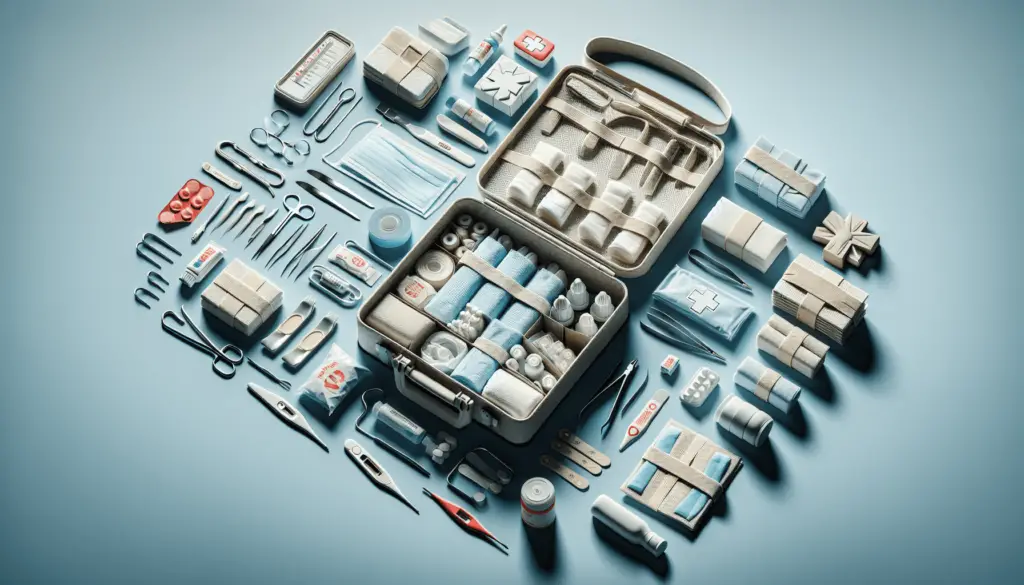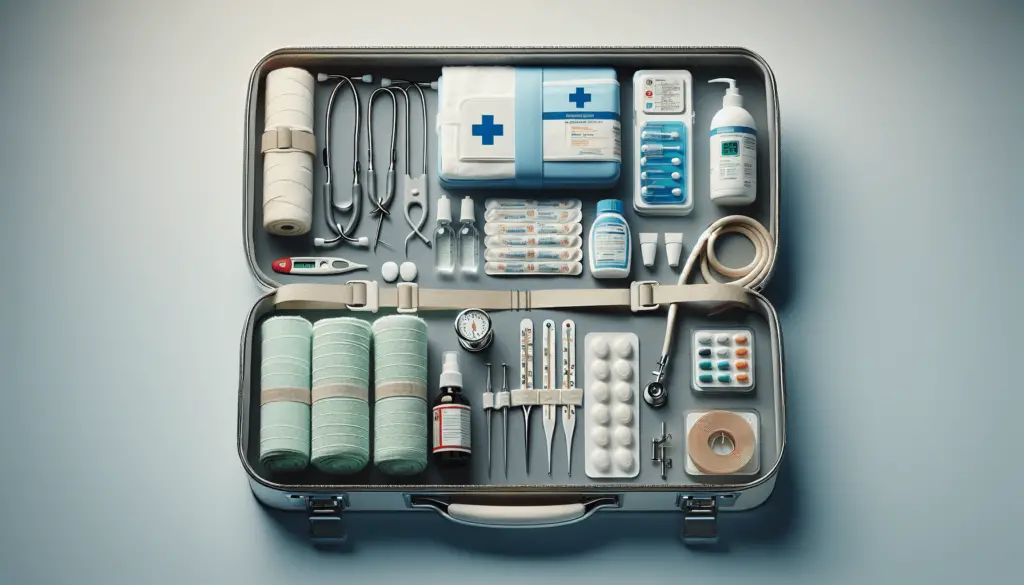The Prepper’s Guide To Efficiently Using Limited Medical Supplies
Have you ever wondered how you can effectively utilize your limited medical supplies in case of an emergency or disaster situation? As a prepper, it is essential to know how to make the most out of what you have. In this detailed guide, you will learn valuable strategies and tips on how to efficiently use your limited medical supplies to ensure the well-being of yourself and your loved ones.

Assessing Your Current Medical Supplies
Before diving into how to use your limited medical supplies efficiently, it is crucial to assess what you currently have on hand. Take inventory of your supplies and make a list of items that need replenishing or upgrading. Knowing what you have will help you prioritize and plan accordingly for any future emergencies.
When assessing your medical supplies, pay particular attention to expiration dates. Discard any expired medications or supplies, as they may not be effective or safe to use in an emergency.
Prioritizing Essential Medical Supplies
Once you have taken stock of your current supplies, it is time to identify and prioritize the most essential items. This includes basic first aid supplies such as bandages, antiseptics, pain relievers, and wound care materials. Make sure to have an adequate supply of these essentials to address common injuries and ailments.
Consider your specific medical needs and those of your family members when prioritizing medical supplies. If anyone has a chronic condition or requires specific medications, ensure that you have an ample supply on hand.
Creating a Medical Emergency Plan
Having a well-thought-out medical emergency plan is crucial for efficiently using your limited medical supplies. This plan should outline step-by-step instructions on how to respond to different medical situations, including who to contact for help and when to seek professional medical attention.
Make sure to include information on how to administer first aid, perform CPR, and handle common medical emergencies in your emergency plan. Practice these procedures regularly to ensure that you and your loved ones are prepared for any medical situation.
Proper Storage of Medical Supplies
Proper storage of medical supplies is key to maintaining their efficacy and prolonging their shelf life. Store medications in a cool, dry place away from direct sunlight and moisture. Ensure that medications are kept in their original packaging with clear labels to avoid confusion.
For supplies that require specific storage conditions, such as insulin or certain medications, invest in a portable cooler or designated storage container to keep them at the right temperature. Regularly check the condition of your supplies and replace any damaged or compromised items.

Understanding Expiration Dates and Shelf Life
It is essential to understand the expiration dates and shelf life of your medical supplies to avoid using ineffective or potentially harmful medications. Most medications have a shelf life of 1-3 years, depending on their type and formulation. Check the expiration dates regularly and rotate your stock to ensure that you always have fresh supplies on hand.
Keep a record of the expiration dates for all your medical supplies and make a schedule for restocking and replacing items as needed. Consider donating any surplus supplies before they expire to avoid wastage and ensure that they are used by those in need.
Improvising with Household Items
In a situation where your medical supplies are running low, it may be necessary to improvise with household items to address medical needs. Items such as clean cloth strips, duct tape, and household bleach can be used as makeshift bandages, wound care materials, and disinfectants in a pinch.
Be creative and resourceful when improvising with household items, but always prioritize safety and hygiene. Avoid using expired or contaminated items, and do not use household items for medical purposes if they are not intended for such use.
Utilizing Multi-Purpose Items
Multi-purpose items are versatile tools that can serve multiple functions in a medical emergency. Items such as duct tape, ziplock bags, and safety pins can be used for wound closure, splinting, and securing dressings. Make sure to include these items in your medical kit to maximize their utility during emergencies.
Consider the versatility and functionality of each multi-purpose item when assembling your medical supplies. Choose items that are durable, easy to use, and can be adapted to different medical situations. Practice using these items in various scenarios to familiarize yourself with their applications.
Training and Education
Having the necessary medical skills and knowledge is as important as having the right supplies in a medical emergency. Consider taking a basic first aid and CPR course to learn essential life-saving skills and techniques.
Stay informed about common medical emergencies, treatment options, and medication administration to be prepared for any situation. Continuous education and training will enable you to make informed decisions and respond effectively in medical emergencies.
Establishing Communication Channels
Communication is key in any emergency situation, especially when it comes to medical emergencies. Establish clear communication channels with your family members, neighbors, and local emergency services to ensure that help can be summoned quickly when needed.
Maintain a list of emergency contact numbers, including doctors, hospitals, poison control centers, and emergency services. Make sure that everyone in your household knows how to access and use communication devices such as phones, radios, and walkie-talkies in case of an emergency.
Building a Support Network
Building a support network of like-minded individuals and preppers can provide valuable resources and assistance in medical emergencies. Join online forums, community groups, or local prepper organizations to connect with others who share your preparedness mindset.
Share knowledge, experiences, and tips with your support network to learn from each other and enhance your medical emergency preparedness. Collaborate on organizing training sessions, drills, and simulations to practice responding to medical situations as a team.
Final Thoughts
Efficiently using limited medical supplies in a medical emergency requires careful planning, prioritization, and resourcefulness. By assessing your current supplies, creating a medical emergency plan, and staying informed about proper storage and usage, you can ensure that you are prepared to address any medical situation that may arise.
Remember to regularly review and update your medical supplies, practice essential medical skills, and build a support network to maximize your preparedness. Stay vigilant, stay prepared, and stay safe in the face of any medical emergency.
